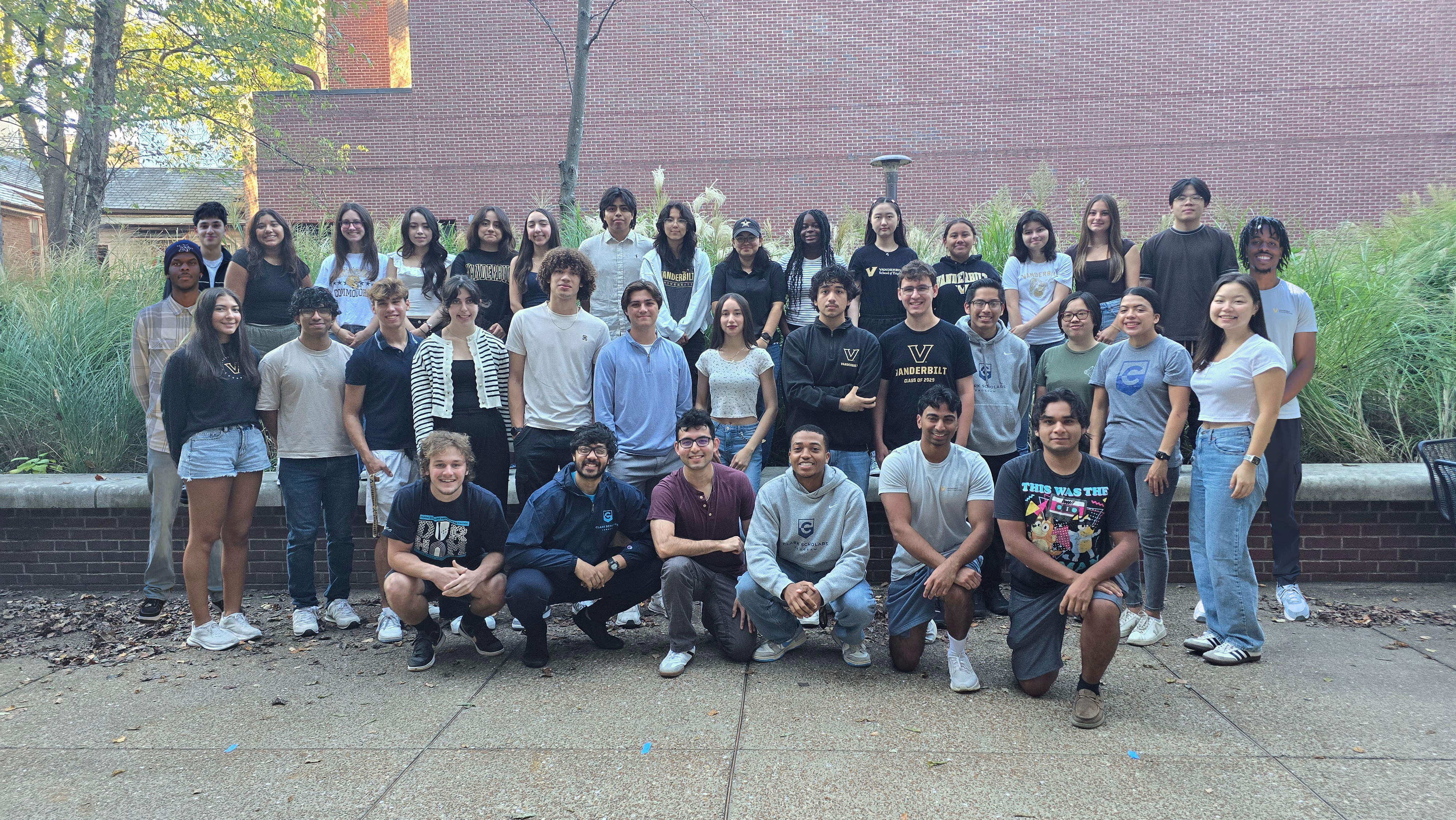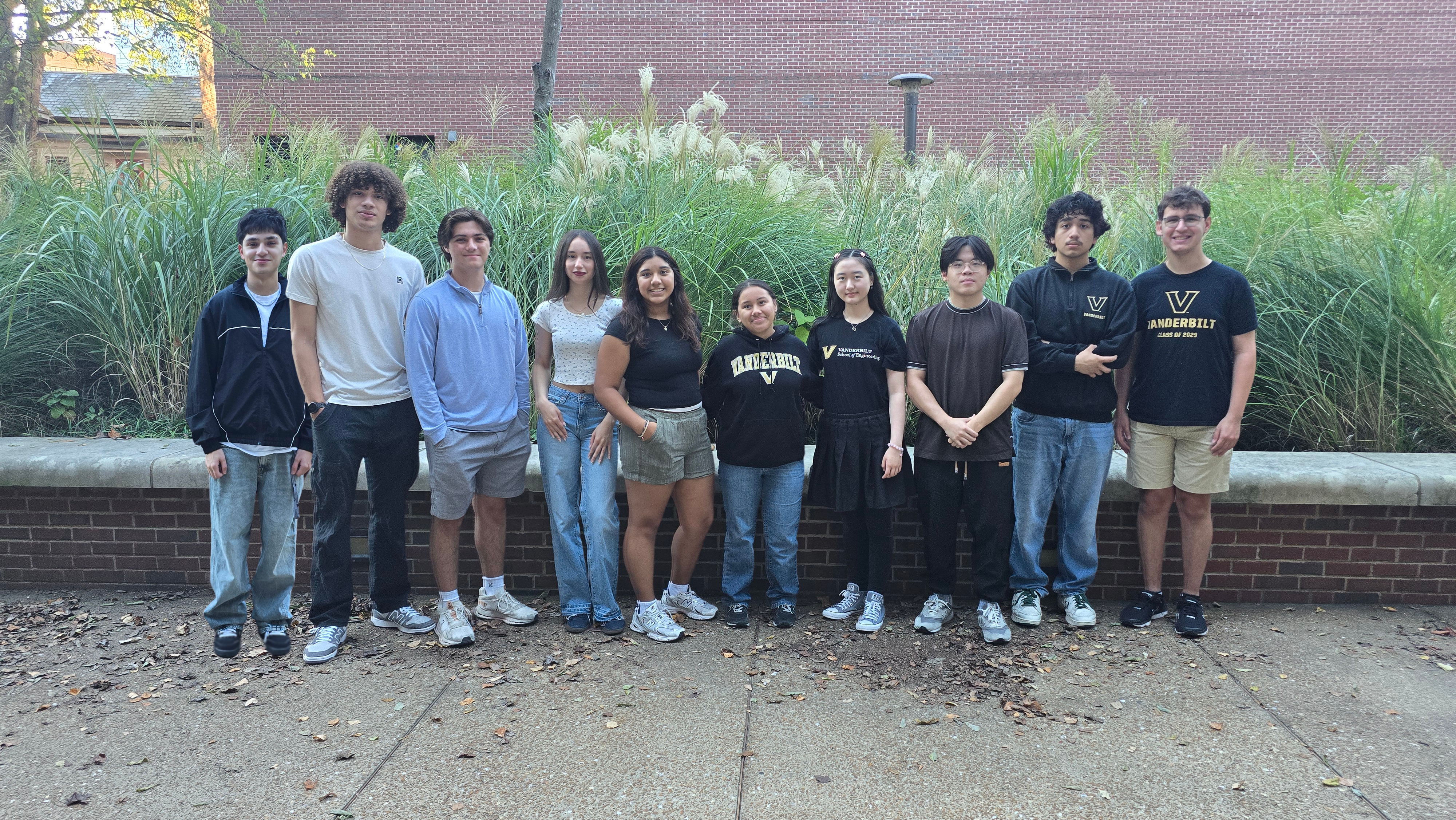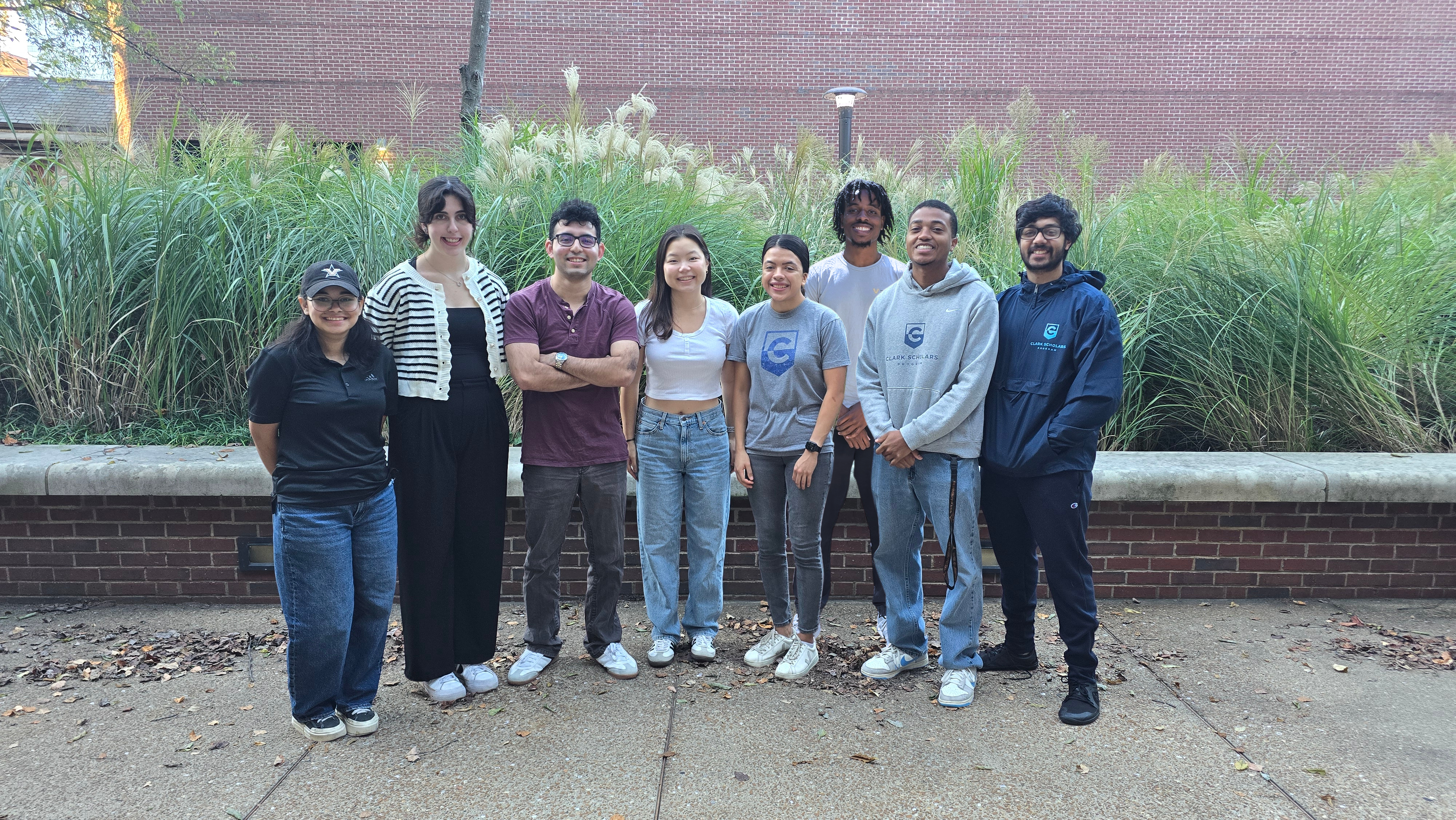In 2017, a visionary $15 million gift from the A. James & Alice B. Clark Foundation to Vanderbilt University established the A. James Clark Scholars Program at the School of Engineering. The Clark Scholars Program is a selective program which enables talented undergraduate students to become engineering pioneers who reflect the character, passion, and vision of the program's namesake.
It emphasizes three key components -- engineering excellence, business acumen and service learning -- characteristics the late A. James Clark embodied and wished to cultivate in others.





Questions about the program?
Contact Julie Vernon, Associate Dean of Student Success
Why Become a Vanderbilt University Clark Scholar?
Academic Excellence
As a Vanderbilt University Clark Scholar, you gain access to one of the nation’s leading engineering programs. Located in the vibrant city of Nashville, TN the School of Engineering combines the resources of a major university with the benefits of a city campus, giving students the tools needed to succeed.
A Supportive Community
You and your fellow scholars will form a cohort, working together with your mentor to navigate life at Vanderbilt University. You will help each other to achieve your goals, while developing life-long friendships along the way.
Career Launch Pad
During your four years as a Clark Scholar, you will receive educational and developmental opportunities with financial support to explore research and business on and off Vanderbilt’s campus. Vanderbilt and the surrounding area are home to some of the most cutting-edge research in engineering and science, along with a strong culture of entrepreneurship and business partnership. Whether you want to be a research engineer in R&D, or create your own startup, Vanderbilt sets you up for career success. Scholars must remain active participants in Clark Scholars programming throughout their undergraduate experience.
1st Year Summer FEST
The Clark Scholar’s experience at Vanderbilt begins prior to the fall semester on campus with a required 4-week summer program in July. This program, supported by the Scholarship, enables entering 1st year students to prepare for the courses which they will be taking in the fall, familiarize themselves with the Vanderbilt campus and City of Nashville and most importantly get to know their fellow 1st year Clark Scholars.
For more information about FEST, go here.
Clark Scholar Program by Academic Year (Highlights)
Year 1: Creating the Cohort Community
- FEST – Bridge program
Prior to the beginning of the Academic Year in August first year students will attend the FEST Program. This is a required on campus bridge program to prepare students for coursework, familiarize them with the Vanderbilt campus and most important begin the process of creating a community within the cohort of 10 Clark Scholars admitted each year. - Orientation
The second week of the academic year students will participate in a team building orientation. Orientation will also include an all cohort gathering to introduce the incoming freshman to upper classmen who will also become their mentors. - Required courses
Engineering Science 1401, 1402 and 1403
This three-part introductory course is designed to assist students in choosing a major or confirming a choice of major and to provide access to engineering topics that otherwise may not be explored. - Summer experience
A hallmark of the Clark Scholars program is guaranteed support for an immersive experience in the summer after the first year. This signature program in the School of Engineering pays students to do research, experiential or service learning programs.
Year 2: Developing Leaders
During the sophomore year, Clark Scholars will focus on diversifying their activities. Students will be expected to use their experience to guide their choice in electives, minor programs, and student organization involvement to further enrich their undergraduate experience. Sophomore scholars will mentor the cohort below them.
- Required courses - Engineering Management
ENGM 2210. Technology Strategy.
ENGM 2440. Applied Behavioral Science - Summer Experience
Sophomores will have the opportunity to apply for industry based paid internships as well as experiential learning and research. Students can apply for support if they are in unpaid internships.
Year 3: Defining Interests, Academic and Professional Development
During the junior year, the engineering curriculum becomes more discipline specific as students are expected to begin solidifying their career plans.
- Required courses - Engineering Management
ENGM 2210. Technology Strategy.
ENGM 2440. Applied Behavioral Science - Professional Development
Juniors will have the opportunity to apply for support to attend a conference for academic or professional development.
Juniors will have regular meetings with the career center for career coaching. - Summer
Summer after the junior year should be reserved for industry-based internships or an intensive summer research experience if a student is preparing for graduate study.
Year 4: Leadership, Career Guidance, and Senior Design
Upon return to campus for their senior year, Clark Scholars will share their experiences with the cohorts below them and allow younger students to ask questions and gain advice on how they can proceed through the next academic years.
- Required course
ES-4951- Senior Capstone Experience - Professional Development
Seniors will have the opportunity to apply for support to attend a conference for academic or professional development
Seniors will have regular meetings with the career center for career coaching
Seniors choosing to apply to graduate school will have regular advising meetings